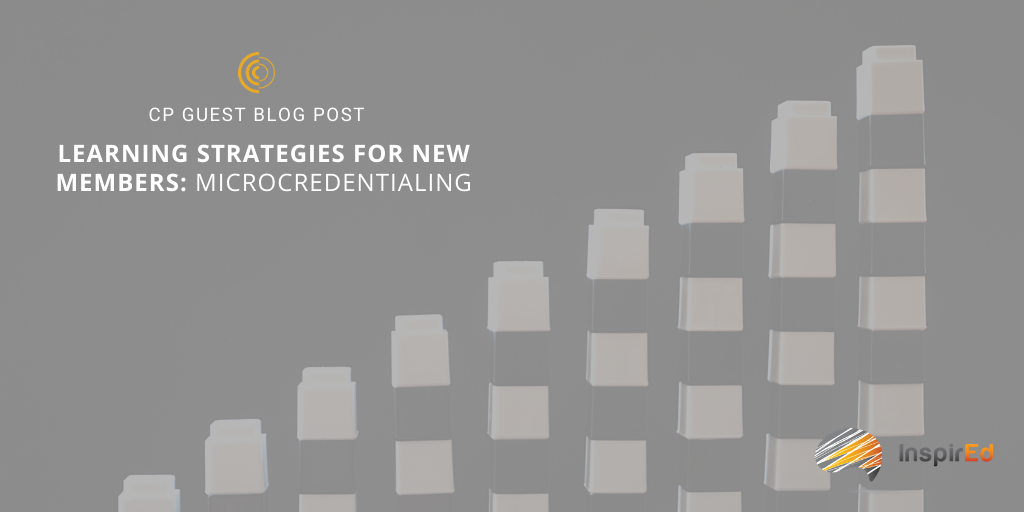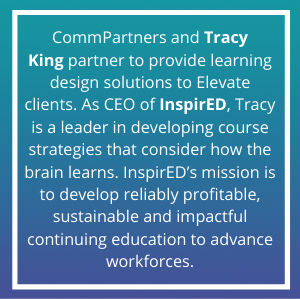
How to Create Microlearning with Elevate LMS
Microlearning is one of the biggest buzzwords in online learning. If you’re already familiar with the e-learning space, you don’t need us to tell you that. Breaking learning down into bite-sized chunks is intuitive, fun, and—most importantly—it gets results.
You don’t have to take it from us. Take a look at the research. Brief bursts of learning result in demonstrably greater knowledge retention than long-form content. Microlearning flattens the Ebbinghaus forgetting curve.
With our help, you can harness the power of this new mode of learning. Here are 5 ways that you can create microlearning with Elevate LMS.
1. Mobile Functionality
Anyone can benefit from microlearning. But it’s ESPECIALLY suited to the generation that grew up with smartphones in their hands.
Most of us think of cell phones and similar mobile devices as strictly for utilitarian or entertainment purposes. Yet they can be powerful learning tools, too.
Elevate LMS is mobile functional. This allows learner to squeeze in quick study sessions on the bus, in line at the bank, or any other brief moment of downtime throughout the day.
2. Short Videos
We’re quite accustomed to attending hour-long talks. But sometimes, no matter how effective the speaker or interesting the material, you just can’t give them your undivided attention. Not for long, anyway.
Around the 10-minute mark, attention might start to wane. Learning comes to a halt.
What’s the solution? Some would say coffee. We don’t disagree. But you know what might be better? A shorter lecture.
Right now, video is far-and-away the favorite microlearning format. Instead of including 30-minute instructional videos in your LMS, try 10, 5, or even 2-minute ones. Your users will remain more focused and have an easier time retaining what they’ve learned.
Stack enough of these microlearning videos on top of each other, and you’ll make no sacrifices in total knowledge transfer.
3. Quizzes
Still, you’ll want to evaluate your learners’ progress. Thankfully, there’s an easy way to implement microlearning in your knowledge checks: quizzes.
You already know what quizzes are, but have you ever thought of them as an example of microlearning? If tests are macro, then quizzes are micro.
Elevate LMS makes it easy to craft quizzes that maximize learning and retention of knowledge.
Remember that even brief knowledge checks can pack a big punch. They reinforce the information your learners have just encountered, while also giving them a sense of where they might need to improve.
4. Podcasts
We’re accustomed to thinking that podcasts should be long, but they really don’t have to be. Don’t blindly buy into the idea that informative audio needs to fulfill a half-hour or longer timeslot.
Why not experiment with a shorter podcast format? Try putting a couple 10-minute-long clips out there and see how your learners respond.
Without the intimidation of a long run-time, they might find it easier to listen into these sessions while doing the dishes, or on quick drives to the grocery store.
Short but informative podcasts are a spectacular informal learning tool in a microlearning format. Trim the fat from your audio materials and jump right to the chase for a better return on the time invested by your learners.
5. Infographics
Forgive us for using the cliché, but here goes: a picture is worth a thousand words.
Like so many other cliches, this one gets repeated so often for a reason: it’s true. A single image can convey more information than a wall of text, and in a more intuitive, approachable format.
Start thinking of infographics as a prime example of microlearning at work in your LMS. Don’t bog them down with information. Make sure it’s easy to extract important info at a glance.
Don’t Forget Your Macrolearning Goals!
With these tools at your disposal, you now know how to implement microlearning into Elevate LMS.
But keep this in mind: none of the things we’ve listed above are microlearning on their own. They only become microlearning if they contribute toward a broader, macro goal.
Think of macrolearning as the main course of your education strategy. Microlearning is the appetizer and—if you do it right—the dessert, too.
Create Microlearning with Elevate LMS
CommPartners knows what it takes to power enduring educational experiences. Our award-winning learning management system, Elevate LMS, contains all the tools you need to implement microlearning and propel the rapid intake of knowledge.
Let’s start a conversation. If you want to learn more about Elevate LMS or our managed event services, contact Meghan Gowen at Meghan.Gowen@gocadmium.com. Keep up with us on Twitter and LinkedIn.



